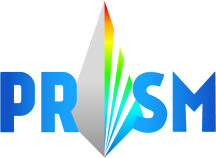
Early Autism Signs in Toddlers: A Guide for Parents
Introduction: Trusting Your Parental Instincts
As a parent, you know your child better than anyone. If something feels “off” in your toddler’s development, you’re not alone—and it’s worth paying attention to. Early signs of autism often appear before age 2, and recognizing them early can make a huge difference in your child’s growth and long-term success.
At Prism Learning Center, we work with families every day who noticed early developmental differences and took action. Here’s how to recognize those signs and what steps to take next.
What Is Autism Spectrum Disorder (ASD)?
Autism is a neurodevelopmental condition that affects how a person communicates, interacts socially, and responds to sensory experiences. It’s called a “spectrum” because signs and symptoms can vary widely from one child to another.
Common Early Signs of Autism in Toddlers
While every child develops at their own pace, the following signs may indicate autism, especially if several are present together:
🔹 Social and Communication Delays
- Limited or no eye contact
- Rarely responding to their name by 12 months
- Lack of pointing or showing objects to others
- Delayed speech or language development
- Not using gestures (e.g., waving, clapping)
🔹 Repetitive Behaviors and Interests
- Repeating the same action over and over (e.g., flapping hands, spinning wheels)
- Intense interest in specific objects or routines
- Difficulty coping with changes in routine
🔹 Sensory Sensitivities
- Overreacting or underreacting to lights, sounds, or textures
- Unusual responses to touch or pain
🔹 Limited Social Interaction
- Prefers to play alone or seems unaware of others
- Doesn’t engage in pretend play by age 2
When Should Parents Be Concerned?
Many signs of autism become noticeable between 12 and 24 months. If you notice delays in speech, social engagement, or unusual behaviors, don’t wait. Early screening can lead to early support—and better outcomes.
The American Academy of Pediatrics recommends developmental screenings for autism at 18 and 24 months, but parents can and should raise concerns earlier if needed.
What Happens After You Spot a Sign?
If you’re concerned about your toddler’s behavior or development:
- Talk to your pediatrician. They can guide you through screenings or refer you to specialists.
- Request a developmental evaluation. A formal assessment by a psychologist, developmental pediatrician, or behavior analyst is the next step.
- Start early intervention. If autism is diagnosed (or even suspected), services like ABA therapy can begin immediately.
How Prism Learning Center Supports Families
We offer:
- Comprehensive ABA therapy programs for toddlers
- Early developmental assessments and goal planning
- Family support to help you navigate the diagnosis process
- A warm, inclusive environment tailored to young learners
Final Thoughts: It’s OK to Ask Questions
Recognizing early signs of autism can be overwhelming—but it’s also empowering. The earlier you seek support, the more you can help your child build a strong foundation for communication, learning, and connection.
Prism Learning Center is here to guide you every step of the way. You don’t have to figure it out alone.
